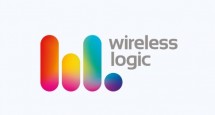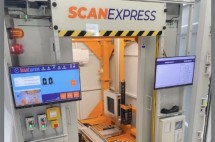Welcoming the Golden Period of Sharia Banking Industry
By : Dhiyan W Wibowo And Aldo Bella Putra | Sunday, December 31 2017 - 23:00 IWST

Ilustrasi perbankan syariah (republika.co.id)
INDUSTRY.co.id - Jakarta, Indonesia with the country with the largest Muslim population is not necessarily instantly equated that every rule imposed in this country, identical with the application of Islamic law and norms.
At least this can be seen from not easy to invite all Muslim communities in the country to run and implement sharia-based economic system in their daily life.
Despite the fatwa issued by the Indonesian Ulema Council (MUI) in 2009, there has been no significant switching or shifting use of Islamic financial system in the country.
Just informed, in 2009 ago, through Decision Fatwa Majelis Ulama Indonesia Number 1 Year 2004 on Interest or intersat or fa'idah, mentioned that the current money flowering practice has met the criteria of usury that occurred in the time of Rasulullah SAW, namely Riba Nasiah.
Thus, this flowering practice is one form of Riba, and Riba Haram Hukum. Practice The use of such laws is haram, whether performed by Banks, Insurance, Capital Markets, Pawnshops, Cooperatives, and other Financial Institutions, or conducted by individuals.
Riba itself is the determination of interest or excessive amount of the loan upon repayment based on a certain percentage of the principal amount borrowed to the borrower.
And Islam prohibits its people from borrowing and borrowing funds by applying interest.
In the last decade, the Islamic finance industry is very difficult to achieve a portion of at least 5% compared to the conventional financial industry.
The problem is the Muslim community in the country is still dominated by the profiles of people who still count with the return on their savings.
So far the Islamic finance industry is still not able to equate the level of returns that their colleagues can offer in conventional business.
The issue of service and the availability of sharia service branches is still considered below the average quality of conventional financial services, contributing to the 'emohnya' of most Muslim public to switch to sharia financial system services.
But entering the year 2017, there is a bright spot that the Islamic finance industry including sharia banking began to get a bigger place in the minds of the domestic public.
This can be seen from the report submitted by the Head of Capital Market Supervisory Department 1B Financial Services Authority (OJK), Sugianto last October in Bogor.
According to Sugianto, as of August 2017, total sharia financial assets of Indonesia (excluding sharia shares) has reached Rp 1,048.8 trillion, consisting of sharia banking assets of Rp 389.74 trillion, IKNB (non-bank financial industry) , 15 trillion, and syariah capital market amounting to Rp 559.59 trillion.
"The amount is compared to the total assets of the financial industry which reached Rp 13,092 trillion, and then the market share of Islamic finance industry has reached 8.01%," said Sugianto in his statement some time ago.
Currently, the sharia banking industry has been enlivened by 13 sharia banks (BUS), 21 sharia banking units, and 167 Rural Banks (BPR) sharia.
The total assets of the sharia banking industry amounted to Rp 389.7 trillion or 5.44% of the total assets of the national banking.
Meanwhile, IKNB Syariah is now also affirmed by 59 sharia insurance, 38 sharia multifinance, six Islamic guarantee, 10 Islamic Micro Finance Institutions (LKM) and 10 other IKNB Syariah, with total assets reaching Rp 99.15 trillion or 4.78% of the total assets of national IKNB.
Sugianto said, OJK targets an increase in the number of consumers or investors of sharia financial products, and increasing public awareness about sharia financial products and services.
"We believe that the Islamic finance industry is able to grow sustainably and play an important role in the national economy, both to fulfill the people's demand for the products and services of the Islamic finance industry, as well as to meet the national development needs, especially infrastructure development," Sugianto said.
In the banking industry, asset achievement of up to 5% compared to conventional assets is not an easy matter.
Since the founding of Bank Muamalat as the pioneer of sharia banking in Indonesia in 1991, towards the composition of 5% sharia asset versus conventional running drag.
In addition to the lack of dissemination in the community, the performance of Muamalat at that time also not enough to make the public interested. Just after the economic crisis, Bank Muamalat as part of the sharia financial industry began ogled customers.
Read Also
FAB to Provide Over AED500 Billion (USD135 Billion) in Green Finance…
CTBC Supports Taiwanese Employees to Go Overseas
Rakuten Card’s Systems Development Subsidiary in Vietnam Relocates…
Increase in New Loan Disbursement Drives Growth in KB Bukopin's Interest…
PermataBank Holds Annual General Meeting of Shareholders 2023 and…
Today's Industry

Jumat, 02 Mei 2025 - 10:46 WIB
Binawan and Government Support Indonesian Nurses in Europe through Scholarships
In the midst of the viral #KaburAjaDulu hashtag as a symbol of the young generation's disappointment with domestic working conditions, Binawan responded with real action: dispatching Indonesian…

Jumat, 28 Maret 2025 - 22:21 WIB
SUNeVision Initiates MEGA IDC Phase Two Development
SUNeVision, the technology arm of Sun Hung Kai Properties (SHKP), today announced the commencement of construction for Phase Two of MEGA IDC in Tseung Kwan O. As Hong Kong's largest data centre…

Jumat, 28 Maret 2025 - 22:07 WIB
TDL Records New Revenue Record of IDR 25 Trillion in 2024 Ahead of 50th Anniversary
PT Metrodata Electronics Tbk (MTDL), the largest technology Company with the most complete IT and telecommunications products in Indonesia, managed to record a revenue of IDR 25 trillion in…

Jumat, 28 Maret 2025 - 22:00 WIB
Wireless Logic Selected By Thales As IoT Connectivity Partner
Wireless Logic, a global leader in IoT connectivity solutions has been selected by Thales, a global leader in advanced eSIM technologies, to enable secure, scalable and resilient IoT connectivity…

Jumat, 28 Maret 2025 - 21:53 WIB
Microvista Expands International Presence with Mobile CT System ScanExpress
The German specialist in industrial computed tomography and non-destructive testing, Microvista, announces the European expansion of its innovative mobile CT system, ScanExpress. The system…
















News Comment